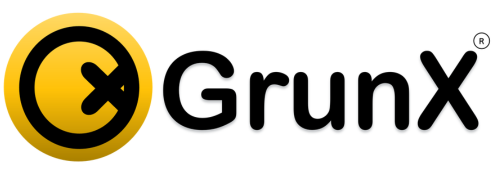
Part 1: Gen Z Slang
Part 1: Understanding Gen Z Slang Basics – Navigating the New Language
In Part 1, we’re diving into the foundations of Gen Z slang—key terms and expressions essential for understanding or communicating effectively with this generation. Born roughly between 1997 and 2012, Gen Z came of age in a digital landscape defined by rapid technological advancements, social media, and meme culture, all of which shape their unique communication style. Their slang is more than just a list of new words; it’s a language that reflects Gen Z’s social identity, humor, and the digital spaces they inhabit. Here’s an in-depth look at the core aspects and top terms in Gen Z slang to help you connect with and better understand this generation.
What Makes Gen Z Slang Unique?
-
Brevity is Key
Gen Z favors short, punchy phrases that get straight to the point, aligning with the fast-paced nature of digital communication. Platforms like TikTok, Twitter, and Snapchat, with their time limits and attention-grabbing feeds, have made concise communication both practical and stylish. Words like “bet” or “cap” communicate agreement or disagreement in one word, a hallmark of this efficient and expressive generation.
-
Irony and Humor
Irony, sarcasm, and absurdist humor are central to Gen Z communication. In fact, slang phrases often carry layered meanings, blending playful exaggeration and humor that, at times, seem nonsensical to those outside the generation. For example, expressions like “I’m dead” (meaning something is hilarious) or “it’s giving…” (used to describe a particular vibe or aesthetic) clearly reflect how Gen Z uses humor to communicate personality and connect with others. Consequently, their unique style of humor helps them foster a sense of identity and belonging.
-
Inclusive and Socially Conscious Language
Many Gen Z terms highlight individuality, inclusivity, and social consciousness, effectively reflecting values like acceptance and identity. For instance, terms such as “main character energy” empower users to see themselves as the protagonists in their lives. Similarly, phrases like “vibe check” tap into the importance of social alignment and mental health. Moreover, this focus on inclusivity resonates deeply with Gen Z’s desire for acceptance across various identities and lifestyles. As a result, their language becomes a powerful tool for expressing and reinforcing these core values.
Below are some foundational Gen Z slang terms and explanations that give insight into their language and worldview:
-
Bet
Meaning: This versatile term is used in place of “okay,” “cool,” or “I agree.”
Usage: Often used to affirm or challenge someone.
Example: “You’re down for a movie tonight?” – “Bet!”
Context: “Bet” reflects Gen Z’s preference for simple, yet confident expressions of agreement or acknowledgment.
-
Cap / No Cap
Meaning: “Cap” refers to lying or exaggerating, while “no cap” means telling the truth.
Usage: Often used to call out dishonesty or to affirm one’s honesty.
Example: “You scored 100 on that test? Cap!”
Context: This term resonates with Gen Z’s emphasis on authenticity and “keeping it real” in social interactions, especially online.
-
Slaps
Meaning: Describes something impressive, typically in reference to music or experiences.
Usage: “This playlist slaps; I’m adding it to my favorites.”
Context: “Slaps” captures Gen Z’s vivid and sensory communication style, suggesting something with powerful, positive impact.
-
Sus
Meaning: Short for “suspicious,” describing something untrustworthy or shady.
Usage: “He suddenly stopped talking when I walked in – kinda sus.”
Context: Originating from the game Among Us, this term shows Gen Z’s blending of pop culture with everyday language.
-
Vibe Check
Meaning: Assessing someone’s mood, energy, or attitude.
Usage: “She failed the vibe check – she’s bringing everyone down.”
Context: It underscores Gen Z’s emphasis on emotional compatibility and mental health in social settings.
-
Living Rent-Free
Meaning: When something “lives rent-free” in your head, it means it’s occupying your thoughts.
Usage: “That meme? It’s living rent-free in my head.”
Context: Reflects the digital age, where certain content can captivate the mind without effort.
-
Main Character Energy
Meaning: Feeling like the protagonist of a story, often with confidence or purpose.
Usage: “Wearing this outfit, I’ve got main character energy today.”
Context: Encourages individuality, a strong theme for Gen Z who often embrace self-confidence and self-expression.
-
Mood / Big Mood
Meaning: Used to agree with or relate to something deeply.
Usage: “That cat napping all day? Mood.”
Context: “Mood” captures the essence of emotional alignment and is used for quick expressions of empathy or understanding.
-
Lowkey / Highkey
Meaning: “Lowkey” suggests something is understated, while “highkey” implies it’s obvious or intense.
Usage: “I’m lowkey obsessed with this song.”
Context: This highlights Gen Z’s tendency to share emotions with varying degrees of intensity, all in a single word.
Exploring the Gen Z Communication Style: Why It Matters
Understanding Gen Z slang goes beyond vocabulary; it’s about embracing a communication style that’s digital, flexible, and purposefully expressive. Moreover, Gen Z has created a language that evolves quickly, using words that transform as fast as trends online. In addition, the way Gen Z uses slang reflects their values of inclusivity, individuality, and emotional authenticity. Therefore, here are some core reasons Gen Z’s language style matters
-
Digital Natives, Visual Communicators
Unlike previous generations, Gen Z grew up with technology and social media; as a result, they have become natural digital communicators. Additionally, emojis, GIFs, and images often complement their words, helping to create a rich, multi-layered language.
-
Values Reflected in Language
Terms like “bet,” “cap,” and “main character energy” not only express emotions but also Gen Z’s values of self-assuredness and authenticity. Each slang word often conveys a sense of identity, whether it’s calling out a lie or encouraging someone to embrace their individuality.
-
Inclusive and Expressive
From “vibe check” to “big mood,” Gen Z slang encourages emotional openness and empathy. For example, these terms are often used to create a welcoming social environment. Furthermore, they allow friends to check in on each other’s mental and emotional states with just a phrase
How to Incorporate Gen Z Slang
If you’re looking to communicate more effectively with Gen Z or understand them better, here are some tips for using these terms naturally:
- Observe Context: Listen to how terms are used on social media or in conversations. Context can shift meanings, so understanding how Gen Z applies these words will help you avoid misunderstandings.
- Use Sparingly: Trying too hard can make it sound forced. Using words like “bet” or “slaps” occasionally will feel natural without coming across as “trying too hard.”
- Stay Updated: Gen Z slang evolves quickly; therefore, it’s important to follow trends online to stay current. Since language changes fast on social media, staying informed will help you keep up with the latest expressions.
Key Takeaways
- Gen Z’s Slang is Rooted in Internet Culture: Digital spaces influence how language is formed and shared.
- Slang is an Extension of Gen Z’s Values: Words express Gen Z’s emphasis on honesty, emotional intelligence, and inclusivity.
- Effective Communication Starts with Understanding: Recognizing Gen Z’s unique expressions fosters connection and understanding, especially in digital spaces.
In Part 2, we’ll dive deeper into more niche slang expressions and their origins, including references to specific social media trends and influencers who popularized them. Stay tuned!







